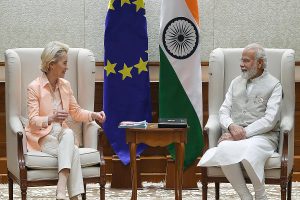Artificial intelligence (AI) in the Indian healthcare market is growing at a compound annual growth rate (CAGR) of 40.6 per cent and is estimated to reach $1.6 billion by 2025, a report showed on Tuesday.
Expected to reach $650 billion by 2025, the overall healthcare sector in India has been growing at a CAGR of 22.5 per cent between 2016 to 2022 and is diversifying in terms of products, services, and markets, according to the report by Nasscom and Kantar.
Advertisement
AI technology promises a transformative leap for India’s healthcare system by enhancing diagnostics, streamlining operations, and improving patient care nationwide, the report added.
“AI holds transformative potential in healthcare, from predictive analytics for disease outbreaks to precision medicine tailored to genetic profiles. To fully harness this, India must invest in AI infrastructure, skilled professionals, and adaptive regulatory frameworks,” said Achyuta Ghosh, Senior Director and Head, Nasscom Insights.
As per a latest Nasscom AI healthcare survey, in verticals such as pharma and life science, 82 per cent of the surveyed organisations have adopted AI in small scale and intend to scale up in 2024, with 12 per cent having already integrated AI into their functional processes.
Among healthcare providers, AI adoption is relatively high at 68 per cent but most of the deployments (92 per cent) are in the proof of concept (PoC) phase.
According to the findings, large tech firms are adopting platform-based approaches and hybrid cloud solutions for scalable and compliant healthcare applications.
While there has been a growing interest and investment in Generative AI, its adoption in the healthcare segment is in its nascent stages, with 34 per cent of healthcare organisations in the country piloted at least 1-2 GenAI use cases in 2023.
“Ensuring data privacy, security, and ethical guidelines is crucial for maintaining public trust. By embracing AI, India can set a global standard for healthcare innovation, driving growth and enhancing the quality of life for millions,” said Ghosh.











